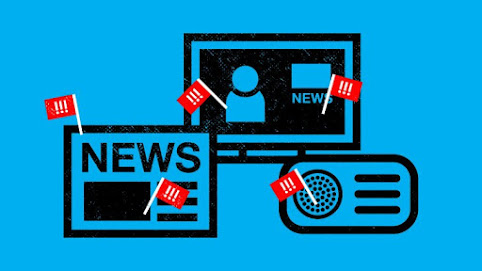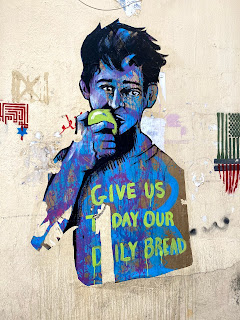Introducing Public Health
"So what exactly is Public Health?"
Well, if you had asked me prior to starting my Masters of Public Health (MPH) program, you would've probably seen me pause for a few seconds and then hesitatingly say something like "umm, public health, like... the health of the public? You know, how to improve the publics' health... it's difficult to explain".
Although there is truth in that response, I probably left people more confused upon replying than clarifying things. Majoring in Biomedical Sciences as an undergraduate, now I know the difference between individual and public health. So now, being a final year MPH student focusing in Health Management & Policy, I believe it is my duty to finally clarify things for everyone that has asked, and for those that will ask in the future! So let us begin the journey to understanding Public Health!
Public Health is a field of study that explores how we can improve the health of people through understanding the various ways in which their health is affected (we will delve deeper into this later on). It ultimately aims to prevent disease, promote health, and prolong life (APHA, 2020). Wait a minute, isn't that the same as medicine? Long story short, no! Public health is much wider, with an obligation to improve health equitably across entire populations rather than only on an individual level (CDC Foundation, 2020).
So how is this done?
Well, Public Health requires multidisciplinary efforts (Schneider, 2000), i.e. public health professionals, doctors, social workers, engineers, graphic designers etc., all depending on what the topic at hand is. Even when studying to become a public health professional, there are several branches; for example, epidemiology (studying the determinants and distribution of disease), health promotion (raising awareness and promoting health in communities), environmental health, and health management and policy (healthcare systems, advocating for new policies, analyzing and improving existing policies... I may be a bit biased when explaining this branch since it's my focus and true passion!). So we can say that Public Health is very broad, and involves being interconnected to governments, municipalities, hospitals, schools, law enforcement, and non-governmental organizations (CDC, 2020).
But why is it a field in itself? Isn't health a right?
Let us begin with how you would define the term "health". Do you think everyone would agree with your definition of health? In reality, no consensus has been truly reached as to what the actual definition of health really is. I would say health is being as "normally functioning" as possible. Others might say it is merely curing diseases, being able to carry out daily tasks, being able to thoroughly enjoy life from all aspects, etc. Your definition of health is unique!
The World Health Organization defines health as "a state of complete physical, mental, and social well being, and not merely the absence of disease or infirmity" (WHO, 1948). On the other hand, the Alma Ata Conference of 1978 additionally added that health is "not merely the absence of disease or infirmity; it is a fundamental human right and the attainment of the highest possible level of health" (WHO & UNICEF, 1978).
The difficulty in this lies in knowing what level of health we can truly attain depending on the context we are in, and whether this level can be equitably spread. As you can probably tell by now, there are multiple factors that play a role in shaping our understanding of health as well as our health itself. Herein we find the challenges of Public Health which, as public health professionals, attempt to identify and find ways to overcome such challenges. Examples of these challenges may include ways to tackle having to restrict peoples' freedoms (e.g. banning smoking in public), opposing views (e.g. religion, common values), political issues, and economic impacts (e.g. loss of revenue after prohibiting water-pipe tobacco smoking in cafes) (Schneider, 2000).
I think I understand now, but I have some questions...
That's what I'm here for! Please leave your feedback, related questions, and any topics you would like me to discuss in future posts below.
Until next time! Stay safe,
S.
References
APHA. (2020). What is Public Health? Retrieved from: https://www.apha.org/what-is-public-health
CDC. (2020). Public Health System and the 10 Essential Public Health Services. Retrieved from: https://www.cdc.gov/publichealthgateway/publichealthservices/essentialhealthservices.html
CDC Foundation. (2020).What is Public Health? Retrieved from: https://www.cdcfoundation.org/what-public-health
ODPHP. (2011). Determinants of Health. Retrieved from: https://www.healthypeople.gov/2020/about/foundation-health-measures/Determinants-of-Health
Schneider, M.J (2000). Why is Public Health Controversial. Chapter 2: In Introduction to Public
Health. Aspen: Gaithersburg, MD.
WHO. (1948). Constitution. Retrieved from: https://www.who.int/about/who-we-are/constitution
WHO & UNICEF. (1978). Alma Ata. Retrieved from: https://www.unicef.org/about/history/files/Alma_Ata_conference_1978_report.pdf



Comments
Post a Comment